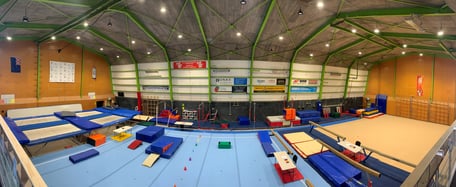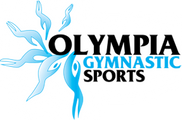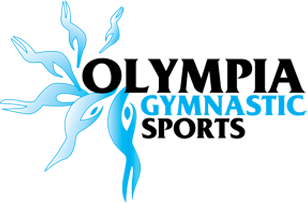Health & Safety

HEALTH & SAFETY & WELLBEING
First Aid - our Gymnastics New Zealand qualified coaches have current first aid certificates and have access to first aid resources.
Mezzanine Floor/Viewing Area - we welcome recreation parents to spectate and ask that you make yourself comfortable up on the mezzanine floor. This area is sectioned to give the seating area away from the banister to prevent any smaller children climbing a chair and reaching over, also to prevent anything being left on the ledge and falling onto the gym floor. For safety reasons we ask that parents do not enter into the main gymnasium or talk to children over the balcony (an accident is more likely to occur if a child is looking up and distracted from the activity they are participating in). Competitive squads train under closed viewing structure, parents will be informed of their viewing dates for each term.
Dropping off, or picking up - please escort your children into and from the building. We have an extremely busy carpark at the commencement/conclusion of sessions, and we also share this carpark with the Harvard Lounge and the adjacent playground/sports grounds. Please ask your children to remain in the building until collection and do not ask them to meet you in the carpark. With thanks.
Illness, Head Lice and Other Medical Conditions - please call the office on 344 6060 if your child will be absent from the session booked. We are most appreciative of those parents who keep their children at home when they are unwell to avoid the spread of infections. Please let the office or Lead Coach know if there is any medical condition and/or allegery that needs to be notified for the safety and wellbeing of your child and others.
Effective Coaching - How your child will be guided throughout the session - By developing management skills coaches learn how to ensure the appropriate behaviour of participants so that an optimal learning environment exists. If coaches do not establish and reinforce appropriate behaviour parameters at the start, they may be reduced to disciplining techniques that are unpleasant and create a negative environment.
It is very important that behaviour parameters are clearly outlined to all the participants at the start of the season. Coaches must be consistent both in their expectations and in enforcing the consequences of inappropriate behaviour.
Following are some of the techniques used by our coaches for developing good team discipline and dealing with inappropriate behaviour:
Positive Preventative Management Often the way the coach has organised the session can provide opportunity for disruptive behaviour, for example too much waiting time and children do not have enough time on task. A coach can reduce or eliminate disruptive behaviour by being well organised in advanced, keeping the talk to a minimum and using variety or examples. Coaches should ignore inappropriate behaviour or attention-seeking behaviour (unless safety is at risk) and reinforce with praise any positive appropriate behaviour. Try to catch athletes being ‘good’ rather than always being ‘bad’.
Verbal Warning When necessary, verbal warnings should be issued in a clear, no-nonsense manner, well timed and well targeted but not demeaning or harsh. If the participants choose to ignore the warning, they risk the removal of privileges.
Removal of Privileges One effective method of dealing with a participant who refuses to modify inappropriate behaviour (after receiving a verbal warning) is to remove certain activities. As safety is paramount any participant who is causing a disruption likely to injure themselves or another will be sat out. Parents will be notified.
Feedback - we welcome your feedback, both positive and constructive. To ensure our programmes are delivered to a high standard, please provide your feedback either to the office on 344 6060 or to the manager via email manager@olympia.org.nz. Feedback can also be directed to The Board, P O Box 160079, Hornby, Christchurch 8441.
Important Health & Safety Links:
Olympia Gymnastic Sports Health & Safety Manual 2019

